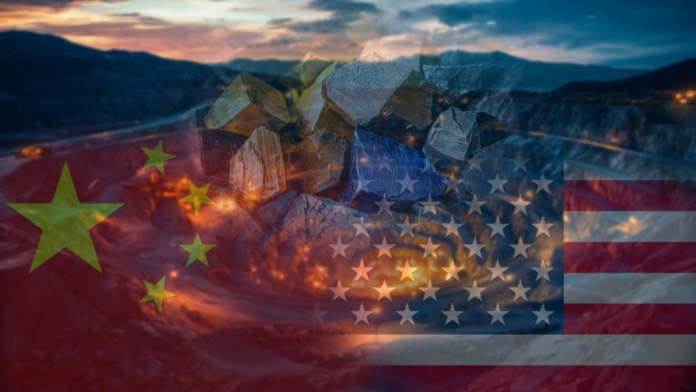U.S. President Donald Trump has warned that China must continue to supply rare-earth magnets to the United States, or face tariffs as high as 200%. Speaking to reporters after a meeting at the White House with South Korea’s President Lee Jae Myung, Trump said that Washington could respond with tough measures if Beijing limits shipments.
“They have to give us magnets. If they don’t give us magnets, then we have to charge them 200% tariffs or something,” Trump said. The statement comes at a sensitive time, as the U.S. and China try to keep alive a fragile trade truce agreed earlier this year.
Rare-earth magnets are crucial for industries including electric vehicles, smartphones, wind turbines, and military equipment. China currently controls about 90% of the global production and refining of these magnets, making it a key player in the market. Any disruption in exports can create significant pressure on U.S. industries that depend on them.
Airplane Parts as Leverage in Trade Dispute
Alongside the warning on magnets, Trump pointed out that airplane parts were being used as leverage in the ongoing dispute. He said that around 200 Chinese aircraft were not able to operate at one point because the U.S. withheld certain parts.
Hong Kong to delist China Evergrande as liquidation of assets continues
“200 of their planes were unable to fly because we were not giving them Boeing parts purposely because they weren’t giving us magnets,” Trump claimed.
Aircraft sales are one of the major links in U.S.-China trade. Boeing has been working on a deal to sell up to 500 planes to China, with talks still in progress over models, delivery schedules, and other details. This deal could play a key role in future trade relations between the two countries.
According to reports, the U.S. is using its strong position in aviation to balance China’s dominance in rare earths. Airplane parts, including engines and other systems, are essential for commercial airlines, making them an effective bargaining chip in negotiations.
Trade Truce Under Pressure
The warning from Trump comes just months after both sides agreed on a temporary trade framework in June. That deal included commitments to ease restrictions on China’s rare-earth exports and also to roll back some U.S. controls on technology shipments.
Despite the agreement, China had placed export restrictions on some rare-earth items and magnets in April as retaliation for earlier U.S. tariff hikes. Since then, trade data shows that exports have started to recover. Shipments of magnets to the U.S. jumped by more than 660% in June compared to the previous month, and volumes rose another 76% in July.
Global trade realignment: US tariffs drive India-China-Russia $54 trillion partnership
Still, tensions remain high. The U.S. and China agreed to lower tariffs on each other’s goods, with American tariffs reduced to about 55% and Chinese tariffs cut to around 32%. However, this truce is set to expire in mid-November unless further steps are taken.
Henry Wang, founder and president of the Center for China & Globalization, said that Trump’s remarks showed eagerness to push trade cooperation forward, but also added that the focus should remain on how both countries implement their agreements.
Senior Chinese trade negotiator Li Chenggang is expected to travel to Washington this week for meetings with U.S. Trade Representative Jamieson Greer and senior Treasury officials, according to reports.
Analysts such as Alfredo Montufar-Helu, managing director at advisory firm GreenPoint, have noted that these meetings could help prepare the ground for higher-level negotiations.
China’s embassy in Washington has not commented on Trump’s latest remarks.
The U.S. continues to rely heavily on rare-earth magnets, while China’s hold over global supply gives it significant influence in negotiations. Trump’s warning highlights how sensitive the issue remains and how quickly tensions could rise again between the world’s two largest economies.
